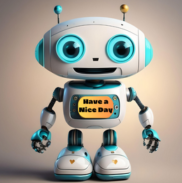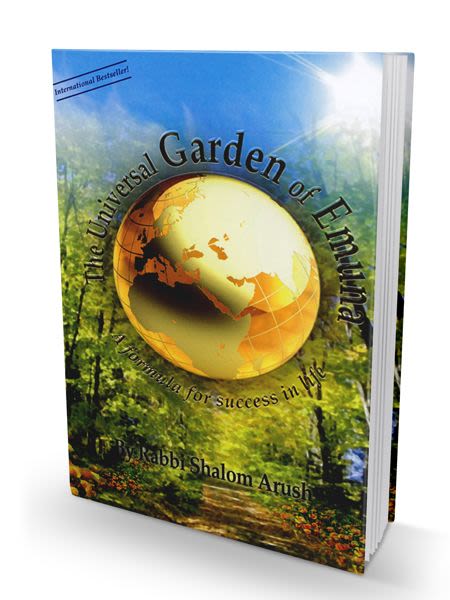
Politeness in the Age of Artificial Intelligence
Utilizing Artificial Intelligence as a "Middot machine," gives us the opportunity to cultivate the virtues of patience and humility, transforming our interaction with technology into a journey to Hashem.

Viewing Artificial Intelligence (AI) not just as a tool for tasks but as a means for self-improvement encourages us to approach technology with a greater purpose. Utilizing AI as a “Middot machine,” gives us the opportunity to cultivate the virtues of patience and humility, transforming our interaction with technology into a journey to God.
Interacting with ChatGPT reminds me of those endless childhood conversations with my grandmother. I was always the curious one bombarding her with questions, and she, ever so generous, indulged me with her wisdom. Gratitude was a given in those interactions. We always said thank you to Bubi.
But extending the same courtesy to a machine?
Should we really be saying “please” and “thank you” to our digital assistants? If that’s the case, what’s stopping us from expressing our thanks to the coffee maker or even our trusty pencil? Does every Google search deserve a polite nod of appreciation?
Generative AI tools like ChatGPT are pioneering uncharted territory, offering a semblance of human interaction we’ve never seen before. Unlike Google, which processes our commands without the need for pleasantries, ChatGPT engages in a genuine back-and-forth, echoing the nuances of human conversation.
The real issue at hand isn’t the technology itself but how we choose to use it. Social media and smartphones have unlocked remarkable capabilities, but they’ve also led us down the rabbit hole of procrastination — be it watching viral cat videos or mindlessly scrolling through TikTok.
It’s the wise among us who harness technology to enhance our lives, striving for personal growth and a deeper connection to Hashem. AI has the potential to be more than just a tool for convenience; it can guide us in cultivating virtues like patience and humility, urging us to embody the essence of a true mensch.
But where does gratitude fit into this digital equation?
In the first and third of the ten plagues, it was Aaron who smote the river that turned into blood and the ground that turned into lice.
Moshe couldn’t do it because the river saved him when he was a baby. It allowed him to travel to Batya, the daughter of Pharaoh, and be redeemed. His name Moshe, means “pulled from the water.” When he smote the Egyptian who was harassing his brother, the ground hid the body so that Moshe could escape to safety.
The greatest figure in history found reasons to be grateful to the inanimate.
That’s our precedent.
The Dangers of Constant Commands
Here are some simple queries for ChatGPT:
- Give me a list of the top novels of the 20th century.
- Make me a table of the last 30 presidents. The columns should be Name, Vice President, and Years in Office.
- Draw up an image of two rabbits getting into a taxicab in downtown Rehovot.
A while back, my buddy hit the jackpot as a Facebook influencer. Posting became his life. He went from a casual twice-a-day to an all-out ten-posts-a-day. It got to a point where real conversations morphed into live feeds. He’d literally talk at us, waiting for likes instead of replies, ready to escalate the volume any time we talked before he finished his verbal “post.”
The danger of misusing this technology is that we start talking to real people as if they are digital assistants. We fall into the pit of acting this way to people who fulfill our requests like a loyal AI bot would – Our spouse. Our parents. Our children. Our best friends.

Unless we practice saying “please” and “thank you’ to a chatbot, we practice not saying these cherished words to the people we love the most.
Taking it for Granted
Who does fulfill our wishes every second?
God.
Every moment, our lungs cry out to Hashem, “Help me, Father, I need another breath.” Every second, our heart cries out to our Maker, “Please, pump my heart one more time.” We make these requests to Hashem over 138,000 times per day!
All He asks is that we acknowledge Him.
In the morning, we recite Elokai Neshama, thanking Hashem for breathing our soul into us. We recite asher yatzar, acknowledging that we have openings and cavities which transport the blood the heart He pumps inside us to our entire bodies, feeding our organs, muscles, and cells.
These prayers make us aware that the most basic functions of the bodies that God gives us are constant gifts. He answers our request for life over 1 million times every week.
Our prayers are as much for us as they are for Him. They mold us into the people He wants us to be.
Gratitude is Everything
Our spouse cooks for us. Cleans for us. Makes sure we are healthy and happy.
Our children give us endless joy. Our parents gave birth to us and supported us when we were helpless.
Friends don’t have the “responsibility” to take care of us the way family does. They do it out of a chosen love.
It would be horrifying for any of us to neglect their love by expecting them to answer our queries like a computer.
If you get used to saying “please” and “thank you” to a conversational machine, at the very least, you will say to yourself, “If I say ‘thank you’ to a computer, for sure I will say ‘thank you’ to this person.”
This is AI in a nutshell.
If you use it right, you will expand your professional horizons. You will get better at anything you do. Personally, you train yourself to become a better person. Dozens of times a day you can reinforce the eternal commandments of saying please and thank you.
This adds light to the world. It fosters love among fellow Jews. As we, the Jewish People, are fighting for our lives right before the coming of Mashiach, we can add light and merit to our national account and petition Hashem to hasten the days when our enemies will never hurt us or our children again.
**
David Ben Horin lives in Afula with his family, millions of sunflowers, and Matilda, our local camel. David‘s Israeli startup, 300 Marketing Solutions, is a lean marketing agency for startups and small businesses that creates and promotes SEO-optimized ROI-driven to the right audience on LinkedIn to make your business the star of the show.










Tell us what you think!
Thank you for your comment!
It will be published after approval by the Editor.